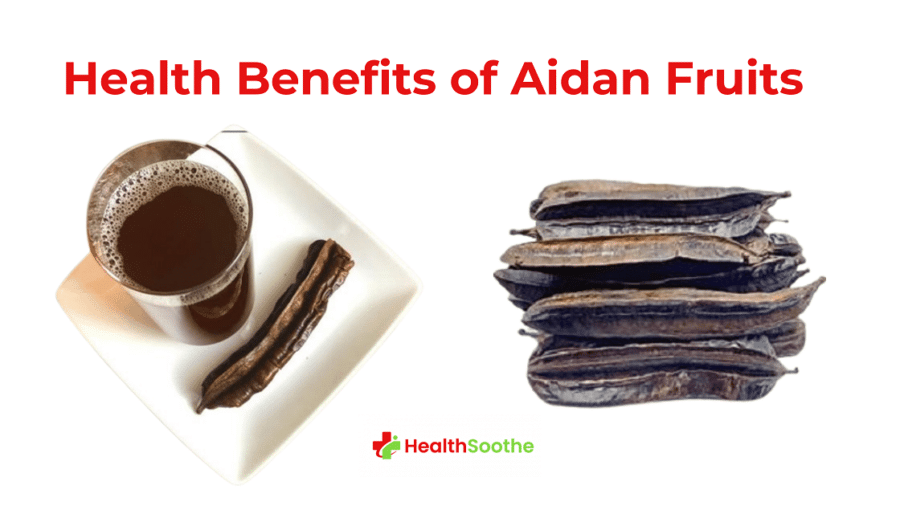This article will not only reveal the health benefits of Aidan fruits, but it’ll also expose you to some side effects that may occur from consuming this plant excessively.
A lot of people don’t know there’s an amazing fruit called “Aidan” let alone explore the health benefits of this fruit.
Aidan fruits are native to West Africa and belong to the pea family. Tetrapleura tetraptera is the scientific name for this fruit, which many people refer to as a “miracle fruit.”
All components of the tree, from the bark to the leaves and, of course, the fruits, have medicinal properties and have been utilized in traditional African houses for ages.
The fruit has a unique scent that keeps insects at bay. Many West African households use it as a spice, food supplement, or medicinal.
Aridan is the Yoruba word for it, Osakrisa is the Igbo word for it, and Prekese is the Ghanaian word for it.
When added in soups, the seeds add sweetness to the dish by imparting their characteristics. Aidan is very nutritious since it is high in important phytochemicals and minerals for our bodies.
Now, is Aidan fruit good for your health or not? To answer this question, one needs first to understand the health advantages and risks of Aidan fruit.
HEALTH BENEFITS OF AIDAN FRUIT INCLUDES:
1. It controls blood sugar level
Studies show that the fruit may lower glucose levels both during fasting and non-fasting hours. As a result, it regulates diabetes since rat research found that it aids in the treatment of Type 2 diabetes.
2. Antibacterial and anti-inflammatory characteristics
The plant possesses antibacterial and microbial properties that may help with skin problems. They heal bacterial infections and inflammations when added to soaps. The extracts function on human infections and may be used to treat arthritis and rheumatoid arthritis discomfort.
3. Lowers blood pressure
The plant’s important phytochemicals offer significant advantages for the cardiovascular system, which helps to treat heart disease and lower blood pressure. It also helps hypertension patients control their oxidation levels.
4. Aidan Powder Boosts the immune system
In addition to adding taste to dishes, the Aidan fruit plant is high in vitamins, iron, calcium, potassium, zinc, and magnesium, all of which serve to strengthen the immune system. Zinc protects the body from viral and respiratory infections, while iron raises blood levels and potassium and calcium build bones while preventing and controlling muscular diseases.
5. Heals infection
Many people believe that Aidan roots and plant is particularly beneficial for female bathroom infections. It is thought that many tradomedicals employ and use it for the treatment of sexually transmitted infections.
Aidan fruits is used to treat schistosomiasis as well as other blood parasites such as malaria. Aidan was once used to treat all sorts of asthma and airway hyperactivity, notably among residents in southeastern Nigeria. Because of its antioxidant and anti-inflammatory properties, Aidan spice is used to treat arthritis and rheumatism.
6. Ailment treatment
The Yorubas think Aidan fruit shrinks uterine fibroids without evidence and is based on oral traditions. Tetrapleura tetraptera helps to lessen epileptic seizures and convulsions. It stabilizes the central nervous system when added to epileptics’ meals. Leprosy is a sneaky, contagious illness that damages the nerves, skin, arms, and legs and may result in micro amputation, yet Aidan fruit extract is used to cure the condition in many local communities.
7. Aidan fruit contains anti-ageing characteristics and prevents skin wrinkles
Those who want to appear youthful, particularly ladies, make Aidan fruits their best friend and use them to spice up their meals every time they prepare. Antioxidants contained in the pod include polyphenols, flavonoids, tannins, and alkaloids, which protect our systems from dangerous free oxygen radicals and oxidative damage that causes ageing.
8. Post-partum recovery and bleeding prevention
The most significant health advantage of the Aidan plant is the rapid recovery of freshly born moms. Aidan fruits are used to prepare soups and yam porridge for new moms who are going to bed immediately after giving birth to aid with uterine contractions, placenta evacuation, and fertilization product absorption. This therapeutic characteristic of the Aidan spice or fruit helps to avoid postpartum haemorrhage.
9. Aids in weight loss
Aidan fruit has compounds that stimulate early satiety and boost fat loss in the body. Aidan fruit also assists in the reduction of excess fat from the stomach as well as tummy flattening.
10. Aidan aids fertility
Aidan, when combined with garlic, has been proved to boost libido in both men and women. It also helps men have better erections and sexual performance. Aidan encourages ovulation and regulates a woman’s menstrual cycle.
SIDE EFFECTS OF AIDAN FRUITS
- Aidan fruit is not healthy to consume during pregnancy: Pregnant people should avoid eating Aidan fruit since it might induce premature uterine contractions, miscarriage, or loss of pregnancy.
Aidan spice, like Uda and alligator pepper, has been utilized for abortion by our foremothers from time immemorial because of its abortifacient ability. If you’re pregnant or trying to conceive, avoid eating Aidan fruit or cooking with the spice since it may lead to miscarriage. - Nausea, vomiting, and worsening stomach ulcers and ulcer symptoms are some of the other negative effects of Aidan fruits. If you have a stomach ulcer, you should avoid Aidan spice.
- Consumption of Aidan fruit in excess may result in renal and/or liver damage. Aidan should only be used in little amounts.
CONCLUSION
People have invented ways of adding Aidan fruits to our meals and drinks to benefits health as it boosts body systems due to its numerous health functions as well as the various minerals and vitamins it contains.
So, therefore, if Aidan fruits/Aidan roots/Aidan powder consumed at the recommended quantities and period, they are healthy for the body.


